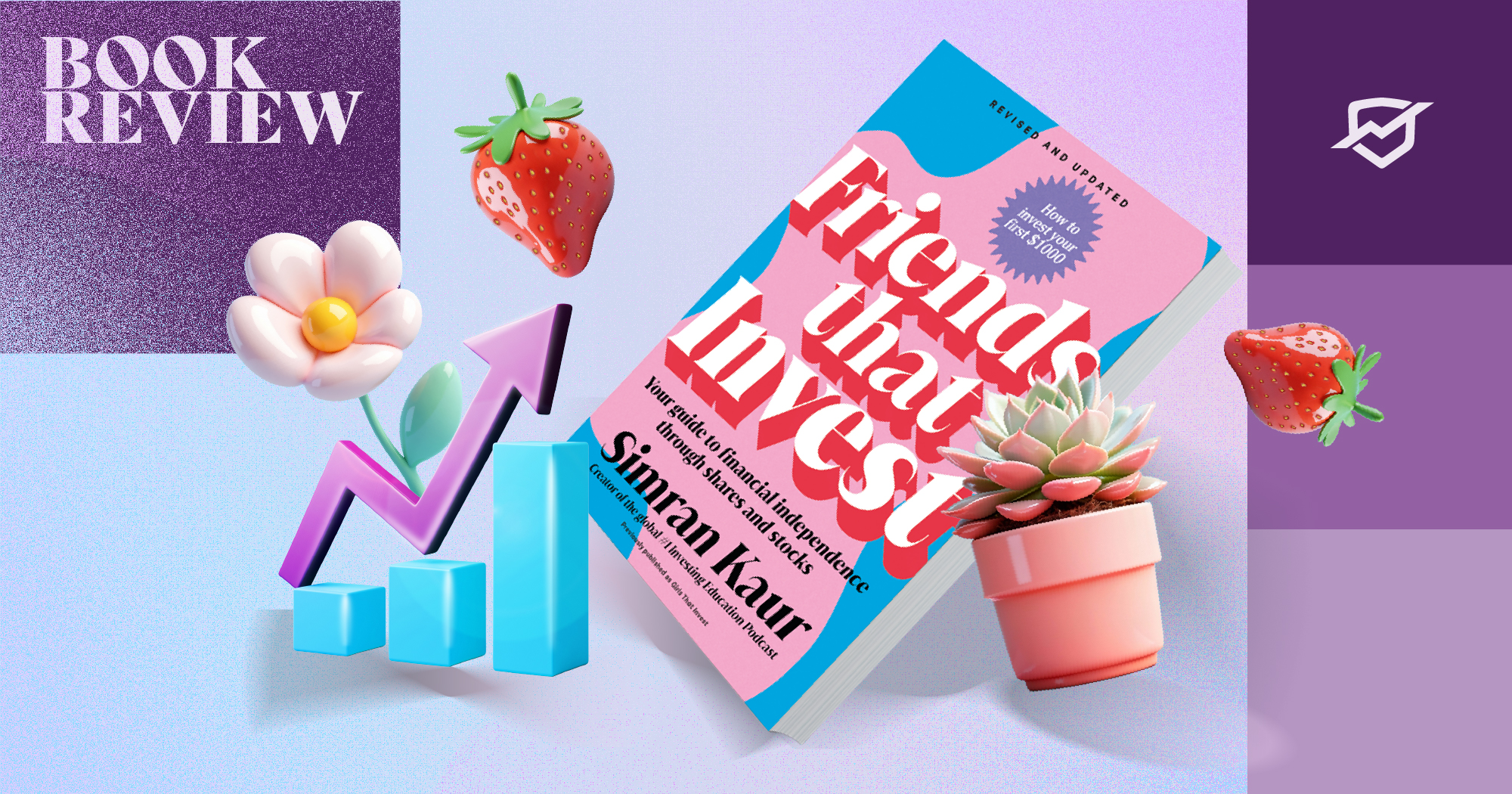
When housing costs climb, it's tempting to treat state lines like an escape hatch. But America's affordable housing crunch doesn't stay politely contained to a handful of expensive places. Lower home prices can come bundled with higher insurance premiums, steeper property taxes, and day-to-day trade-offs that quietly raise your baseline costs.
 Money tips
Money tips
Starting a small business can feel thrilling, right up until the “money stuff” shows up. In this edition of Ruth’s Two Cents, Ruth shares the practical steps she wishes she’d known earlier in her own journey: test your idea with real customers before first, keep business and personal money separate from day one, and build at the “speed of cash” so you can learn without panic.
 Money tips
Money tips
Thinking about seeing an accountant can feel like a big step, especially when you’re not sure what you even need. Accountant Sam Harith explains when it makes sense to get professional help and how to choose the right kind of support, so you can book that first meeting feeling clear and prepared.
 Money tips
Money tips
Sustainable investing can sound like the best of both worlds, but does “ethical” mean lower returns — or just better marketing? In this edition of Ruth's Two Cents, Ruth breaks down what ethical investing really is, how to spot greenwashing, and the simple checks that matter most.
 Money tips
Money tips
Week three of Emma Edwards' silly-season money diary slows things right down — desk days before shutdown, a self-serve acai bowl break and the steady drip of "life admin" spending. With PocketSmith tracking it all as it happens, she teases out what a quieter week's receipts show about planned routines, sneaky annual fees, and the small choices that keep holiday spending feeling calm.
 Money tips
Money tips
Week two of Emma Edwards' silly-season money diary follows her out of the house and onto the highway — regional motel mornings, long freelance drives, supermarket top-ups, and a weekend away with her husband stitched on at the end. With PocketSmith keeping a running log in the background, she pulls out what this week's receipts reveal about momentum, fatigue, and the small comforts that keep things moving.
 Money tips
Money tips
This month, Emma Edwards is keeping a very honest spending diary as life ramps up for the silly season — gym mornings, book launches, TV spots, gift cards, hash browns and all. Using PocketSmith to tag and separate it all (business vs. personal, solo treats vs. social plans), she looks at the feelings behind each transaction, not just the total at the bottom.
 Money tips
Money tips
Starting in 2026, millions of people who were previously shut out of ABLE accounts will finally be allowed in, thanks to a long-delayed change in the age-of-onset rules. It won't magically fix asset limits, discrimination, or every broken rule you're dealing with, but it can make it easier to save, cover housing and other big needs, and keep vital benefits like SSI and Medicaid.
 Money tips
Money tips
Rachel's great at saving, less great at spending on purpose. To keep money from gathering dust, she added a Splurge category in PocketSmith — a small, non-negotiable pot to use every month. It's her circuit breaker, helping her step out of the Savings Spiral and into a healthier, more generous, and more present relationship with money.
 Money tips
Money tips
Charitable giving lands best when it’s planned. In this edition of Ruth’s Two Cents, Ruth shows how to budget for generosity: start with time if cash is tight, set a weekly amount or income percentage into a ‘Giving’ fund, and give freely to pick causes that fit your values.
 Money tips
Money tips
Being single comes with freedom and independence, but it can also mean higher costs. The so-called 'singles tax' isn't a real tax, but the extra expenses that come from living solo without someone to share the bills. Why does living solo often cost more? This is the reality of the singles tax — and some practical ways to ease its impact on your finances.
 Money tips
Money tips
Investing can be a scary topic that many lack the confidence to tackle. Simran Kaur shares advice and knowledge to give you confidence to start dabbling in investments. Do you feel confident to kick-start your investing journey? Read on and find out how to overcome the gaps standing between you and the fruits of investing.
 Money tips
Money tips
A podcast is the perfect low-effort entertainment for busy lives, and New Zealand and Australia do it best. Here are some of our favourite financial podcasts for 2025 from down under, full of financial knowledge to help you become more confident in managing your money.
 Money tips
Money tips
Parenting doesn’t stop when your kids leave home, and sometimes that means offering financial help. But how do you support them without creating dependency? In the latest edition of Ruth's Two Cents, Ruth The Happy Saver shares her two cents on striking the balance and why financial literacy is key.
 Money tips
Money tips
Spending half her income on rent might raise eyebrows, but for Rachel, it's about more than cost — it's about value. In a region known for its beauty and high living expenses, she's chosen safety, convenience, and a lifestyle that fits her priorities. Here's why, despite the price tag, she thinks it's worth every cent.
 Money tips
Money tips
Travel doesn’t have to be expensive, and the cheapest option isn’t always the best. The real trick is finding the balance between cost and experience. With smart planning and the right tools, Michelle from Traveloka shows how you can save money while still enjoying a fulfilling trip.
 Money tips
Money tips
The UK's neobanks and money apps are shaking up old-school banking with smart features and slick interfaces designed for modern money management. With smart features and sleek designs, these digital-first platforms are changing the way we manage money. Emma's rounded up the top contenders making waves right now.
 Money tips
Money tips
Neurodivergent people often need flexible tools to manage money in ways that work for them. We explore how PocketSmith supports different neurodivergent needs with customisation, visual tools, and smart guardrails — featuring Sarah, an autistic user who shared how PocketSmith helps her budget confidently across currencies.
 Money tips
Money tips
Is downsizing in retirement the smart move or an emotional minefield? In this edition of Ruth’s Two Cents, Ruth responds to a newly retired reader torn between the practical benefits of selling their longtime home and the emotional weight of leaving it behind.
 Money tips
Money tips
After an exciting adventure of the #digitalnomadlife, Rachel returned to New Zealand, facing reverse culture shock and high food prices. Transitioning from freelancing to a new office job after two years, she joined a close-knit team. This return to office life not only taught Rachel about the work and organisation but also offered valuable lessons about money
 Money tips
Money tips
Online dating has become a standard avenue for romance. As the norms around digital dating have evolved, so too have the financial dilemmas it presents. While issues like who pays for dates or when to discuss finances are largely based on personal preference, protecting your financial safety is essential. With the rise of online scams, especially on dating apps, maintaining vigilance is essential.
 Money tips
Money tips
Many families go through daily life without talking much about money, even though it influences everything from meals to milestones. Fresh Moni’s Willie Leota encourages simple, open conversations about money at home to build understanding and reduce stress.
 Money tips
Money tips
If you're neurodivergent, traditional budgeting tools might not feel like they're built for your brain, which can be discouraging. We believe you're not bad at money, you just need tools that work the way you do. We're showing how PocketSmith's flexible features can support your unique thinking style and simpler financial planning.
 Money tips
Money tips
It's tax time somewhere, and that means it's the perfect moment to get your finances in order. Whether you're self-employed, a business owner, or managing your own books, knowing what to tackle at the start of the financial year vs. the end can make all the difference. Sam Harith shares his tax time insights.